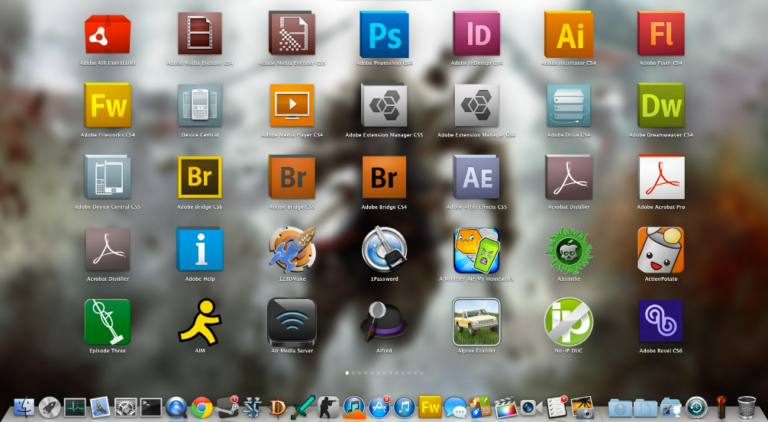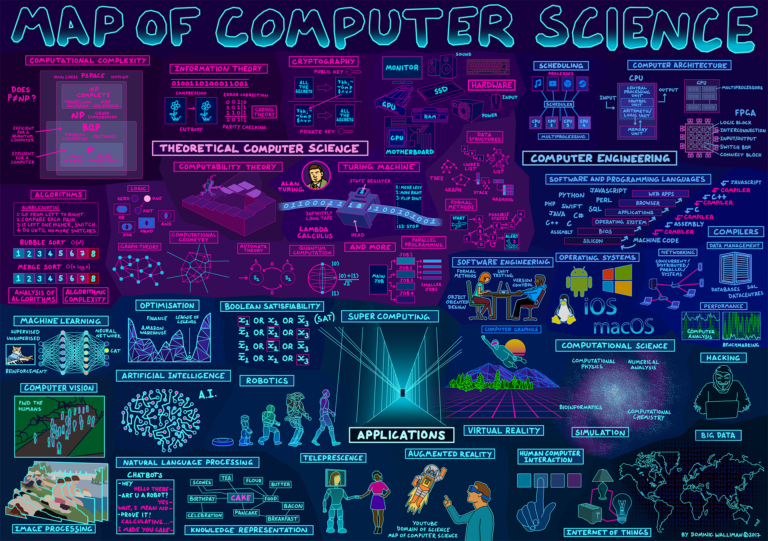Computer Science Education
- Focus on the fundamentals: Take the time to understand the core concepts of computer science such as algorithms, data structures, and programming languages. These will serve as building blocks for more complex topics in the future.
- Practice coding: The more you practice writing code, the more you will develop your skills. Try to work on personal projects or contribute to open-source projects to get more experience.
- Work on real-world problems: Look for opportunities to work on projects that have practical applications in the real world. This will help you develop problem-solving skills and gain practical experience.
- Collaborate with others: Working with others can help you learn from their experiences and approaches to problem-solving. Joining a coding community or a hackathon can be a great way to collaborate with other like-minded individuals.
- Keep up with industry trends: The field of computer science is constantly evolving, so it’s important to stay up-to-date on new technologies, tools, and best practices.
- Attend conferences and events: Attending conferences and events related to your field can provide valuable networking opportunities and help you learn from experts in your industry.
- Take on internships or co-op opportunities: Internships or co-op opportunities can give you real-world experience, as well as provide you with valuable networking opportunities.
- Build a portfolio: Create a portfolio of your projects and experiences to showcase your skills and accomplishments to potential employers.
- Get involved in open source projects: Contributing to open-source projects can help you build your skills, gain experience, and establish a reputation in the industry.
- Stay curious and keep learning: Keep your curiosity alive and continue to learn throughout your career. Computer science is a constantly evolving field, and staying curious and open to new ideas will help you stay ahead of the curve.
- Seek out mentors: Find individuals in your field who can provide guidance, advice, and insight into the industry. Mentors can help you set goals, answer questions, and provide support as you navigate your career.
- Participate in hackathons: Hackathons are events where teams of programmers and designers come together to create solutions to real-world problems. Participating in hackathons can help you build your skills and network with other professionals in the industry.
- Take advantage of online resources: The internet is filled with free resources for learning programming, from online courses to tutorial videos. Take advantage of these resources to supplement your coursework and expand your knowledge.
- Learn from your mistakes: Making mistakes is a natural part of the learning process. When you encounter a problem, take the time to understand what went wrong and how you can avoid the same mistake in the future.
- Develop your communication skills: Communication is a critical skill for any computer science professional. As you work on group projects or interact with clients, take the time to hone your communication skills and practice expressing complex technical ideas in a clear and concise manner.
- Stay organized: Keeping track of multiple projects and deadlines can be challenging. Develop good organizational habits and tools, such as using a calendar or task management app, to help you stay on top of your workload.
- Network: Building a strong professional network is key to advancing your career in computer science. Attend industry events, join professional organizations, and use social media to connect with other professionals in your field.
- Consider pursuing advanced degrees: While not required, pursuing an advanced degree such as a Master’s or PhD can open up opportunities for research, teaching, and leadership roles in the industry.
- Stay passionate: Remember why you chose to study computer science in the first place and stay passionate about your work. Pursuing what you love will help you stay motivated and focused on your goals.
- Have fun: Finally, don’t forget to have fun! Computer science can be a challenging and rewarding field, and maintaining a sense of humor and perspective can help you stay positive and productive throughout your studies and career.
- Develop a broad range of skills: While it’s important to specialize in specific areas of computer science, it’s also valuable to have a broad range of skills. For example, learning about user interface design, project management, or data analysis can help you become a more well-rounded and valuable professional.
- Seek out internships in different industries: Computer science is relevant to many different industries, from healthcare to finance to entertainment. Consider seeking out internships in different fields to gain exposure to different applications of computer science and to find what areas you may be most interested in.
- Work on open-ended projects: In addition to completing assignments for your courses, work on personal projects that have no specific requirements or expectations. This can be a great way to explore your own interests and develop your skills in new and creative ways.
- Seek out diversity and inclusivity in your education: Computer science has a history of being dominated by white men. It’s important to seek out courses, events, and opportunities that prioritize diversity and inclusivity to broaden your perspectives and learn from individuals with different backgrounds and experiences.
- Consider learning a variety of programming languages: There are many different programming languages and each has its own strengths and weaknesses. Learning a variety of languages can help you be more flexible and adaptable in different situations.
- Use technology to collaborate with others: In addition to working in person, consider using technology to collaborate with others remotely. Video conferencing, instant messaging, and shared online tools can help you work effectively with team members who are not in the same location as you.
- Take breaks and practice self-care: It’s important to take breaks and practice self-care to avoid burnout. Exercise, take walks, and spend time with friends and family to maintain a healthy work-life balance.
- Volunteer your skills: Consider using your computer science skills to help out in your community or for a nonprofit organization. Not only will you be giving back to others, but you’ll also be building valuable experience and expanding your network.
- Attend meetups: Join local meetup groups to connect with other developers in your area. This can be a great way to learn about new technologies, discuss current trends, and gain new perspectives.
- Participate in coding competitions: Participating in coding competitions can be a fun way to challenge yourself and develop your skills. Competitions such as the International Collegiate Programming Contest or Google Code Jam are great places to start.






